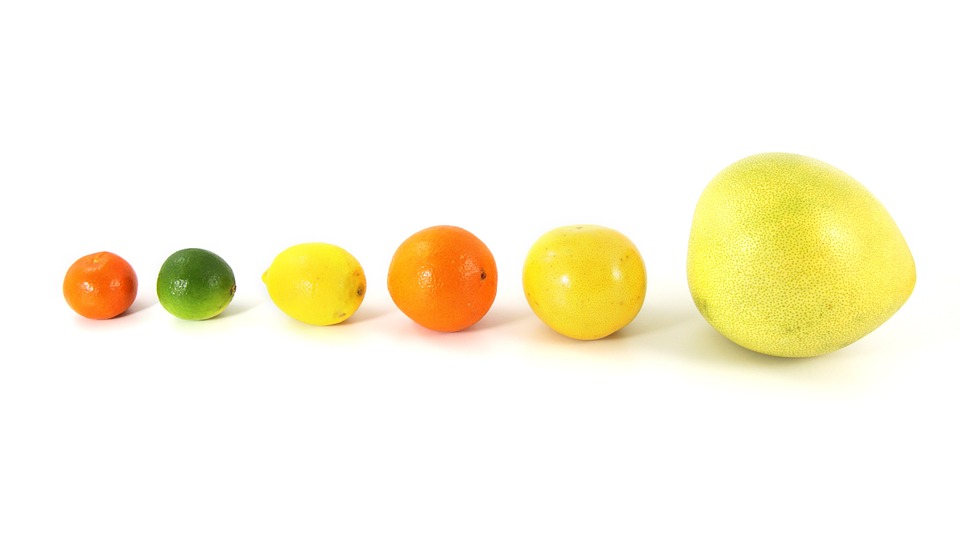This article dives into the question of whether cats can safely consume oranges, exploring the potential benefits and risks associated with this citrus fruit. We'll examine the nutritional content of oranges, the potential dangers posed by their consumption, and provide a comprehensive guide for cat owners regarding their feline companions' interaction with oranges. This article aims to equip cat owners with the knowledge to make informed decisions about their cats' dietary needs.
Part 1: Understanding the Nutritional Value of Oranges

Oranges are renowned for their bright colour and refreshing flavour, but their nutritional value for cats is debatable. While humans benefit from the high vitamin C content in oranges, cats are able to produce their own vitamin C through metabolic processes. This means that they don't require external sources of vitamin C like humans do.
1.1. Vitamin C Content and Feline Metabolism
Cats possess the unique ability to synthesise their own vitamin C within their bodies, rendering dietary sources of vitamin C unnecessary. This internal production mechanism ensures that cats maintain a sufficient level of vitamin C for their physiological needs.
1.2. Other Vitamins and Minerals
While vitamin C is not a concern, oranges contain other vitamins and minerals that might seem beneficial, including:
- Vitamin A: Crucial for healthy vision and immune function. Cats can obtain adequate vitamin A from a balanced diet of meat-based cat food.
- Folate: Essential for cell growth and development. Again, cats can get sufficient folate from their regular cat food.
- Potassium: Plays a role in muscle function and nerve impulses. Cats can obtain adequate potassium from their diet without needing to consume oranges.
However, these vitamins and minerals are readily available in other, more appropriate cat foods and treats that are designed to meet their specific nutritional needs.
Part 2: The Risks of Oranges for Cats

While oranges may appear harmless, their consumption poses several potential risks to cats due to their unique physiology and dietary requirements.
2.1. Citrus Toxicity: Psoralens and Their Effects
Oranges contain psoralens, phototoxic compounds that can cause skin irritation and inflammation when exposed to sunlight. While these compounds are not typically fatal to cats, consuming oranges can lead to:
- Gastrointestinal upset: Diarrhoea, vomiting, and abdominal pain are common symptoms. The acidic nature of oranges can irritate the cat's digestive tract.
- Skin reactions: Irritations, rashes, and even burns are possible, especially if the cat's skin is exposed to sunlight after ingesting orange. Psoralens can make the skin more sensitive to UV rays.
2.2. Essential Oils: A Concentrated Danger
Orange peels, in particular, are rich in essential oils that are highly concentrated and toxic to cats. Ingesting these oils can lead to serious complications, including:
- Liver damage: Essential oils are processed by the liver, and excessive consumption can overwhelm the liver's ability to detoxify them, leading to liver damage.
- Respiratory issues: Cats can experience difficulty breathing and wheezing due to the irritation of the respiratory tract by the essential oils.
- Neurological problems: Seizures and tremors are possible, indicating that essential oils can affect the central nervous system.
2.3. Sugar Content: A Hidden Threat
Oranges are relatively high in sugar, which can contribute to weight gain and dental issues in cats. A diet rich in sugary treats can lead to:
- Obesity: Increasing the risk of diabetes and other health problems related to excessive weight gain.
- Dental problems: Plaque buildup and tooth decay are common consequences of a sugary diet, potentially requiring dental cleaning and other procedures.
Part 3: What Happens if My Cat Eats an Orange?

The severity of a reaction to orange consumption depends on several factors, including the amount eaten, the cat's individual sensitivity, and whether they ingested the peel or essential oils.
3.1. Mild Reactions: Temporary Discomfort
If your cat nibbles on a small piece of orange, they may experience mild gastrointestinal upset, such as vomiting or diarrhoea. This is usually temporary and should resolve on its own. However, it's best to monitor your cat for any persistent symptoms.
3.2. Severe Reactions: Signs of Toxicity
Severe reactions to oranges are less common but can occur if your cat ingests a significant amount, especially the peel or essential oils. Symptoms like lethargy, tremors, or difficulty breathing require immediate veterinary attention.
3.3. Monitoring Your Cat: Observing for Signs of Trouble
If you suspect your cat has eaten an orange, monitor their behaviour closely for any signs of distress. Look for any of the following:
- Vomiting
- Diarrhoea
- Lethargy
- Tremors
- Difficulty breathing
- Skin irritation
If you notice any adverse reactions, contact your veterinarian immediately. They can assess the situation and advise on the appropriate course of action, which may involve administering activated charcoal or other treatments to reduce the absorption of toxins.
Part 4: Alternatives to Oranges for Cat Treats
Cats have specific dietary needs that are different from humans. While oranges may be a tempting treat for some cats, they are not a suitable snack for them.
4.1. Safe and Healthy Options: Dedicated Cat Treats and Homemade Alternatives
Many cat-friendly snacks are readily available, offering a healthier alternative to oranges. These options include:
- Commercial cat treats: Look for treats specifically designed for cats, with balanced nutrition and low sugar content. These treats often contain ingredients like meat, fish, or poultry, which are more appropriate for feline diets.
- Homemade cat treats: Recipes using safe ingredients like chicken, fish, or vegetables are readily available online. These homemade treats can be tailored to your cat's preferences and nutritional needs.
- Fruits and vegetables: Some safe fruits and vegetables for cats include blueberries, watermelon, and cooked green beans. Remember to introduce new foods gradually and monitor for any adverse reactions.
4.2. Consulting Your Veterinarian: Personalized Dietary Advice
Before introducing any new food or treat to your cat, consult your veterinarian. They can advise on appropriate choices based on your cat's age, health, and individual needs. Your vet can help you find safe and nutritious options that support your cat's overall well-being.
Part 5: A Guide for Responsible Cat Owners
Owning a cat comes with the responsibility of ensuring their health and safety. This includes making informed choices about their diet and environment.
5.1. Keep Oranges Out of Reach: A Safe Home Environment
Ensure that oranges and other citrus fruits are inaccessible to your cat, whether in your home or outdoors. Store oranges in sealed containers or out of reach of curious paws.
5.2. Educate Yourself and Others: Sharing Knowledge for Safety
Educate yourself and other family members about the potential dangers of oranges for cats. Avoid offering them as treats or snacks, and explain the reasons behind this decision to others who might interact with your cat.
5.3. Seek Professional Help: Contact Your Veterinarian
If you have any concerns or questions regarding your cat's diet, contact your veterinarian. They can provide valuable advice and guidance on safe dietary choices for your feline friend.
Part 6: Frequently Asked Questions
6.1. Can cats eat orange peels?
No, cats should never eat orange peels. The peels contain essential oils that are highly concentrated and toxic to cats, posing a significant risk to their health.
6.2. Is orange juice bad for cats?
Orange juice is also not suitable for cats. It contains high sugar content, which can lead to weight gain and dental problems, and it lacks the nutrients that cats need. Additionally, the acidic nature of orange juice can irritate their digestive tract.
6.3. Can cats eat orange segments?
While a small amount of orange segment might not be fatal, it's still not recommended. The potential risks outweigh the minimal nutritional benefits. The psoralens in oranges can cause skin sensitivity, and the acidity can upset their stomachs.
6.4. Are there any breeds of cats that can tolerate oranges?
No, there are no cat breeds known to tolerate oranges. The toxicity of citrus fruits affects all cats, regardless of their breed or size.
6.5. What are some safe fruit alternatives for cats?
Safe fruit options for cats include blueberries, strawberries, and watermelon in moderation. However, always consult your veterinarian before introducing new foods. Some cats may have sensitivities to certain fruits, and your vet can advise on appropriate choices for your individual cat.
6.6. Can cats eat orange zest?
Orange zest, like orange peels, is also toxic to cats due to its high concentration of essential oils. It's best to avoid giving your cat any part of an orange, including the zest.
In conclusion, while oranges may seem appealing, they are not a safe food for cats. Their potential risks far outweigh any potential benefits. By understanding the dangers and adopting responsible practices, cat owners can ensure their feline companions enjoy a healthy and happy life.
Everyone is watching
-

Are Cat Ribs Flexible? Understanding Their Anatomy
CATS & KITTENSThis article delves into the fascinating world of feline anatomy, exploring the flexibility of cat ribs and ho...
-

Can Cats Eat Bananas? (Everything You Need to Know)
CATS & KITTENSThis article dives into the intriguing question of whether cats can safely enjoy the sweet, yellow fruit, bana...
-

Cat Lifespan: How Long Do Cats Live?
CATS & KITTENSThis comprehensive guide explores the factors influencing the lifespan of our feline companions, providing ins...
-

Can Cats Get COVID-19? What You Need to Know
CATS & KITTENSThis article will delve into the fascinating world of feline COVID-19 susceptibility. We'll explore whether ca...
-

Can Cats Eat Eggs? A Complete Guide to Egg Safety for Your Feline Friend
CATS & KITTENSWhen it comes to treating our furry companions, we all want to ensure we're doing what's best for them. Eggs...
